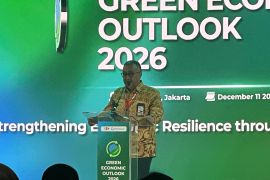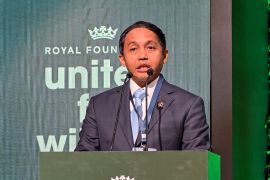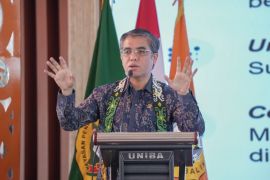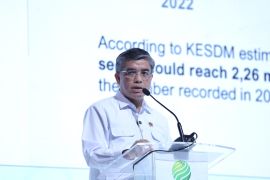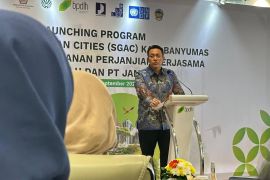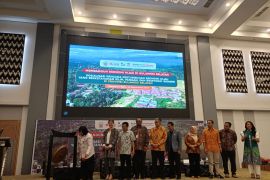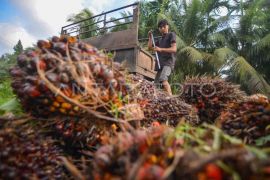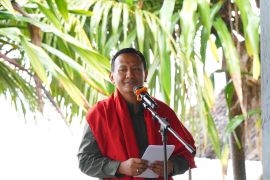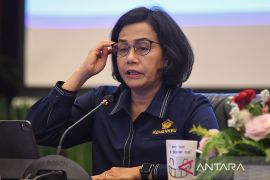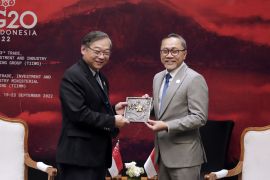According to UNEP, investment in a Green Economy could create millions of new jobs.Jakarta (ANTARA News) - Indonesia, along with the entire world, will observe World Environment Day (WED), which has been commemorated every June 5 since 1972.
Initiated by the United Nations Environment Program (UNEP), World Environment Day is aimed at personalizing environmental issues and enabling all people to realize their responsibilities and their power to become agents for change in support of sustainable and equitable development.
For WED 2012, the Indonesian government has coined a national theme: "Green Economy: Change the Habits, Improve the Environment`s Quality".
"UNEP has designated `Green Economy: Does It Include You?` as the 2012 theme for World Environment Day, while nationally we will focus on changing habits," Indonesia`s Environmental Affairs Minister Balthasar Kambuaya said in Jakarta, recently.
Balthasar urged Indonesians to use the momentum of World Environment Day to change their habits and encourage others to do the same.
The commemoration of World Environment Day will begin at Merdeka Palace on June 5, and will be marked by the presentation of the Adipura, Adiwiyata and Kalpataru awards by President Susilo Bambang Yudhoyono.
World Environment Day will also be highlighted with an Environment Week exhibition held at the Jakarta Convention Center from June 7 to 14, 2012.
The minister said there are several definitions of what a Green Economy is, and in Indonesia it concerns a change of habits, because environmental problems are closely related to the public`s behavior.
"We also define a green economy as a way of improving the welfare of the people while, at the same time, preserving the environment," the minister noted.
UNEP describes a Green Economy as one that results in improved human well-being and social equity, while significantly reducing environmental risks and ecological scarcities. In its simplest expression, a Green Economy can be thought of as one that is low carbon, resource efficient and socially inclusive.
President Susilo Bambang Yudhoyono, when addressing the Global Ministerial Environment Forum in Bali in February 2010, called for the adoption of a Green Economy development strategy which is pro-growth, pro-jobs and pro-poor.
The Second United Indonesia Cabinet later launched a Green Economics program as part of its sustainable development plan.
To support the implementation of Green Economics, the cabinet has drawn up programs on food resilience by implementing sustainable agriculture, sustainable forestry management, efficient and renewable energy usage, clean technology support, waste management, efficient and low carbon transportation management, and green infrastructure development.
In the industrial sector, for instance, the Industry Ministry is considering granting incentives to various industries receiving green industry awards in 2012 as part of its efforts to encourage businesses to use natural resources in a sustainable way.
The incentives may come in the form of a discount for industries intending to convert their equipment and machines to produce green products, Arryanto Sagala, the head of the ministry`s board for industrial climate and quality policy studies, said last March 2012.
"The incentives are in the form of a 10 percent discount to be made available to textile, footwear and sugar industries. The program will reduce the use of energy by up to 25 percent," Sagala noted.
At the grass root level, the Indonesian Environmental Forum (Walhi) launched a two-day Green Saturday market for organic foods on March 23, 2012 as part of its efforts to realize local food sovereignty in the country.
Upi Gufiroh, Walhi`s coordinator for the Green Saturday organic market, explained at the launch that the aim of the project was to increase the public`s appreciation of local foods so that the local food industry in Indonesia would not be suppressed by the materialism and consumerism that has penetrated the country`s villages.
Besides presenting organic foods, the opening of the market was also marked by demonstrations of food processing, discussions, a poster exhibition and a film on the environment.
Last year, around 1,200 young people from over 100 countries participating in the UNEP Tunza International Children and Youth Conference in Bandung, West Java, referred to the Green Economy as "the only integrated framework that is truly sustainable - placing human well-being, social equity and environmental protection on an equal footing."
"The trend and science tell us that we cannot wait another generation (until a Rio+40) before acting - the green economy is our only future," the young people stated in a Bandung Declaration issued on the final day of the conference, which was organized from September 27 to October 1, 2011.
The Bandung Declaration also identifies access to green jobs as critical for achieving a sustainable transition to a green economy.
"In the next ten years, as the world`s population passes 7 billion, we need to provide jobs for more than 1 billion young people - employment that will both enable them to live productive and worthwhile lives and to contribute to the transition to a just green economy," the Declaration states.
It is estimated that nearly 40 per cent of the world`s unemployed, over 80 million people, are between the ages of 15 and 24.
President Yudhoyono, when addressing the 100th session of the International Labour Conference in Geneva in June 2011, expressed his support of promoting Green Economics.
"In Indonesia, we intend to advance a national green skills development strategy. We plan to pursue a decentralized youth apprenticeship programme for green jobs and take measures to foster entrepreneurship and self employment in the green sector," he said.
According to UNEP, investment in a Green Economy could create millions of new jobs. One of the main engines for economic growth is a higher rate of employment, which both reduces a burden on the economy and gives consumers the purchasing power to sustain lives through supporting industries.
Over 2.3 million people working in green jobs in just six leading countries (China, Denmark, Germany, India Spain, and the United States) were estimated to be employed in the low-carbon sector in 2008.
The Green Economy is, therefore, not just a passing environmental fad, but is one of the best solutions available for sustainable economic growth that recognizes the social component, UNEP said.(*)
Reporter: By Fardah
Editor: Heru Purwanto
Copyright © ANTARA 2012

